57-year-old runs across Africa in record time while avoiding kidnap
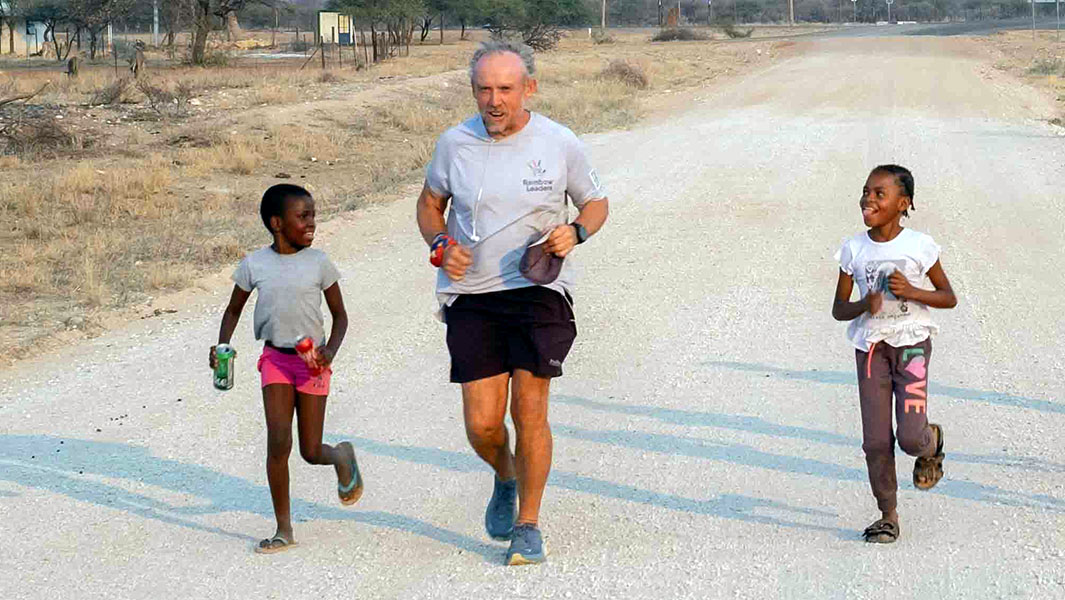
A British-South African man has run the entire length of Africa in 301 days, breaking a 25-year-old world record.
Keith Boyd, 57, achieved the fastest journey from Cape Town to Cairo on foot, beating the previous record by 17 days.
He covered 10,793 km (6,706 mi), passing through South Africa, Botswana, Zimbabwe, Zambia, Tanzania, Kenya, Ethiopia, Sudan and Egypt.
He originally planned to run the route in the opposite direction, starting in Cairo, but he decided to start in Cape Town instead due to the ongoing civil war in Sudan, hoping that the situation would improve by the time he reached the country.
But it turned out to be Ethiopia where he encountered the most issues, describing that portion of the run as “hell on Earth”.
If not for the setbacks he experienced there, which include being assaulted and held at gunpoint, he could have completed the journey a few weeks earlier.
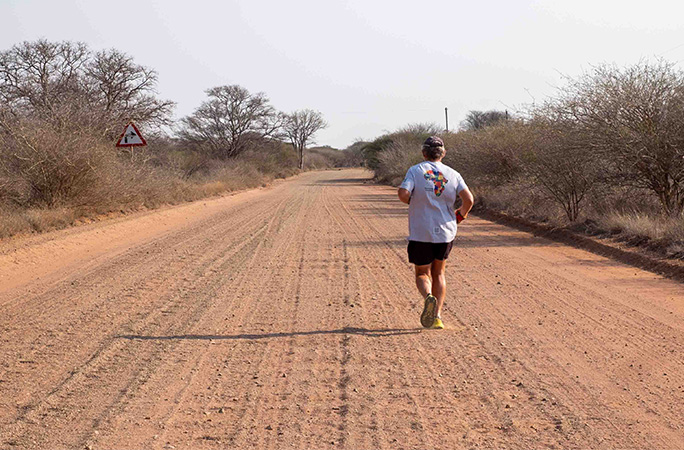
Keith undertook this challenge to raise money for his non-profit organization Rainbow Leaders, which aims to combat poverty in Africa by encouraging young people to vote.
He said: “I long viewed the journey from Cape Town to Cairo by foot as one of the toughest and most difficult challenges of mental and physical strength. And I believed that if I could complete the journey in world record time at my age, this might inspire people in a number of ways.
“The first and most important to me is to reduce poverty levels in Africa through getting young people actively engaged in democracy, thereby electing good leaders and holding them accountable.
“That is the only way that we can grow the economy faster than the population, thereby creating more desperately needed jobs, and reducing poverty.”
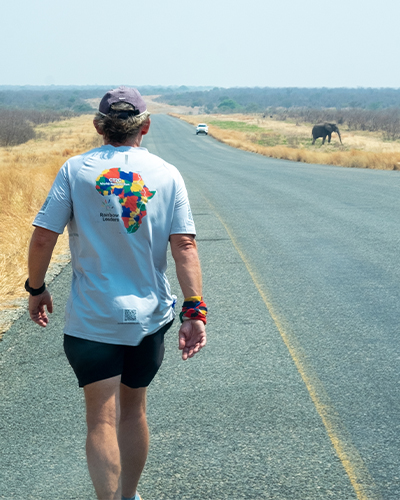
Keith, who worked in telecommunications in Africa for over 30 years, spent four months intensively training for this record attempt.
He ran 200 km per week to build the necessary strength and endurance in his feet, legs and back, preparing him somewhat for the extreme muscle pain and fatigue that he experienced throughout his run.
He was supported by a small team who followed behind in a van containing camping equipment and medical supplies.
Kidnapping attempt in Ethiopia
The first half of Keith’s journey went relatively smoothly; he crossed South Africa in 47 days, Botswana and Zimbabwe in just over two weeks, then Zambia, Tanzania and Kenya in roughly a month each.
He averaged 50 km per day, usually splitting it up into five 10 km chunks.
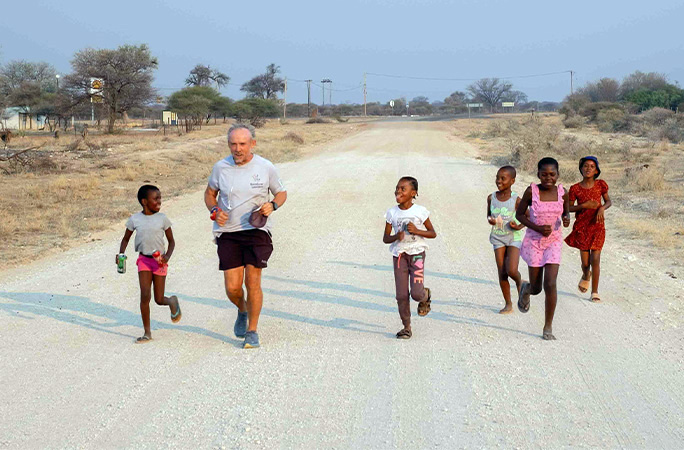
However, progress slowed in Ethiopia, where he was almost kidnapped when trying to cross the war-torn northern region of Amhara.
He was turned back when he first tried to pass through the area, and on the second occasion, he was stopped and beaten by gunmen who bundled him and his videographer into a van.
Recounting the experience on CapeTalk Radio, Keith said: “If you get half a kilometre away from the road you might as well be 100 miles from anywhere.
“The police or the military just won’t find you there in those sorts of areas. And then you have a full-blown kidnapping situation.”
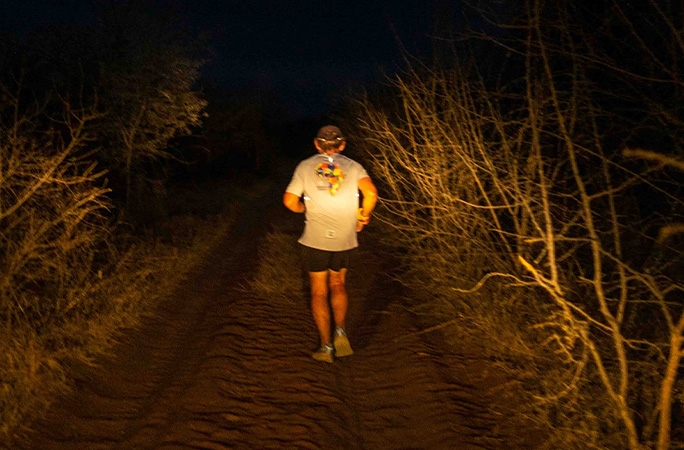
Luckily, Keith was able to stall his captors’ attempts to take them away from the road, and he eventually negotiated his release for $1,000 (£770).
He was then able to run a further 100 km with a military escort until it became too dangerous to continue, forcing him to leave for Sudan without finishing.
He managed to avoid the conflict in Sudan by following an easterly route to Egypt, eventually reaching Cairo 270 days after leaving Cape Town.
Needing to complete the final 500-km stretch of Ethiopia that he’d skipped, Keith petitioned the Ethiopian government to provide him with security, but after almost three weeks without a response, he arranged passage with “a heroic and humble” team of local civilians and officials.
However, the journey still proved to be fraught with danger, with Keith describing it in a Facebook post as “my definition of hell on Earth”.
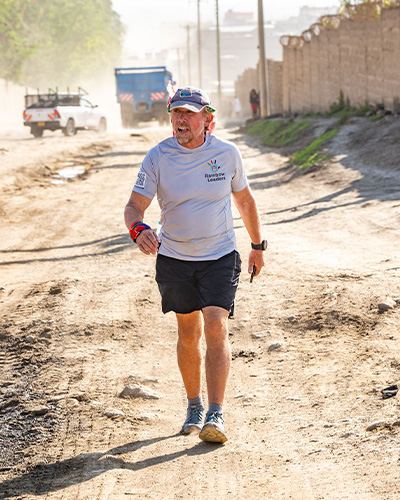
He revealed that he and his team were ambushed, forcing them to lie in a ditch for cover; they were also locked up overnight in an overcrowded cell without being charged; and they were threatened and assaulted multiple times by drunken gunmen.
“What the people in the northern Amhara region of Ethiopia are going through right now is appalling,” he wrote.
“The media and internet blackout means that not even the people in other parts of Ethiopia understand how bad things are right now.”
In addition to continuing his work with Rainbow Leaders, Keith is now writing a book titled Running Africa, detailing everything he experienced and witnessed during his journey.
If you love watching records being broken you should check out our Records Weekly series on YouTube...


